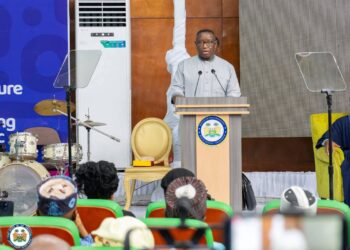Economic experts have warned that Namibia could face a serious graduate oversupply crisis if the country’s new policy on free tertiary education is not directly tied to job creation, skills development, and industrial needs.
At a recent Sanlam Allianz economic discussion, Statistician-General Alex Shimuafeni stressed that education reform must be closely aligned with employability and economic diversification to deliver meaningful results.
The caution comes as the government allocates N$663 million for registration and tuition fees for the first quarter of 2026, marking a key phase in the rollout of subsidised free tertiary education.
> “People don’t eat roads; they want jobs and food on the table,” Shimuafeni said. “If we are serious about reducing unemployment, government procurement must deliberately buy local and create opportunities for young producers.”
He warned that unless education is designed to serve Namibia’s economic needs, the country risks expanding access to degrees without improving livelihoods.
According to Shimuafeni, 44.4% of Namibians aged 15–34 are currently unemployed — a figure that rises to 61.4% when discouraged job seekers are included.
Linking Education to Employment
Economist Armando Jansen of Simonis Storm echoed the call for reform, urging the government to channel education funds toward labour-intensive sectors capable of generating widespread employment.
> “We need to move funds to sectors that create more jobs,” Jansen said. “Capital-intensive industries drive growth but do not absorb large numbers of workers. The focus should be on areas that promote broad participation and sustainable livelihoods for young people.”
Balancing Access and Outcomes
The experts’ comments reflect growing debate around Namibia’s ambitious plan for free tertiary education, a policy widely welcomed by students and families but viewed by economists as risky if not supported by robust workforce planning.
Analysts say that without practical training, entrepreneurship support, and strong industry linkages, the initiative could inadvertently widen the gap between education and employment — leaving thousands of graduates jobless despite government investment.



















































































 EduTimes Africa, a product of Education Times Africa, is a magazine publication that aims to lend its support to close the yawning gap in Africa's educational development.
EduTimes Africa, a product of Education Times Africa, is a magazine publication that aims to lend its support to close the yawning gap in Africa's educational development.
